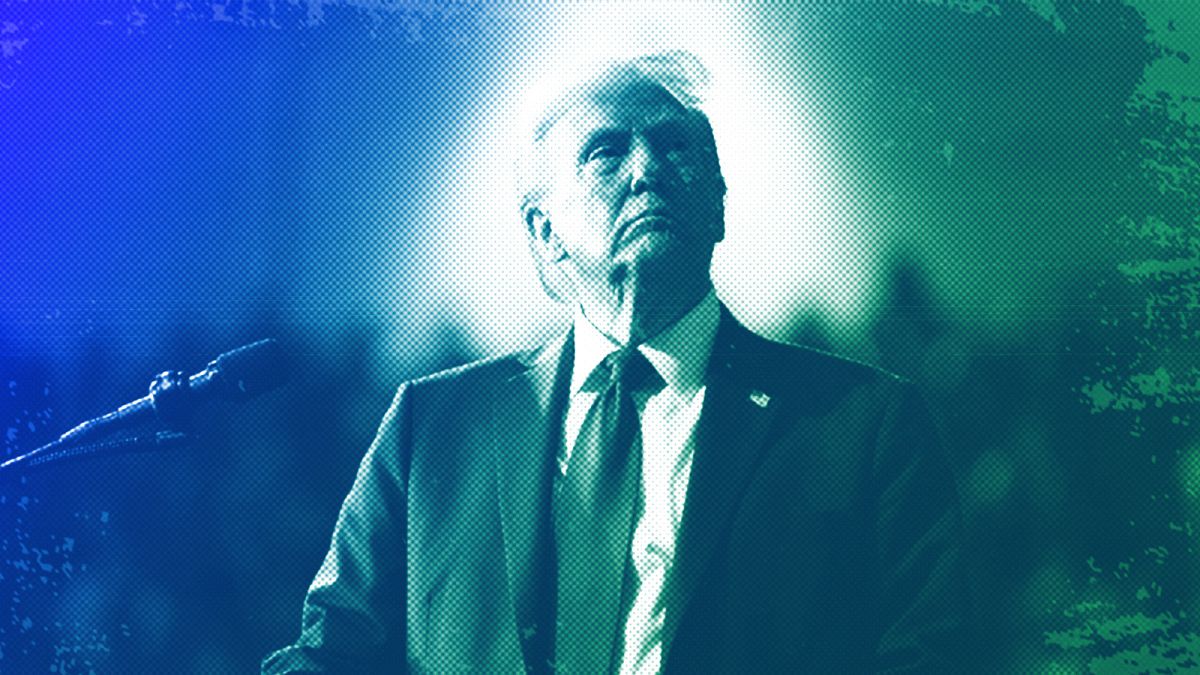The opinions expressed in this article are those of the author and do not represent in any way the editorial position of Euronews.
Democratic principles cannot rely solely on enlightened leaders but must be upheld by a broad, inclusive consensus, Graziella Romeo writes.
“American politics has often been an arena for angry minds,” wrote historian Richard Hofstadter in Harper’s Magazine in November 1964, referring to Barry Goldwater’s 1964 presidential campaign.
His essay, “The Paranoid Style in American Politics,” explored a recurring phenomenon: the tendency to construct paranoid visions, identifying a nefarious enemy plotting to undermine the American ideal.
Hofstadter described this as a psychological posture – an exaggerated suspicion and conspiratorial fantasy – not a psychiatric madness, but a way of thinking embraced by otherwise healthy individuals. This critique of the paranoid style is recurrently cited when American political life, as in the (new) Trump era, is marked by deep-seated fears and extremist rhetoric.
Hofstadter’s insights resonate again with today’s political climate. In the 1960s, Goldwater stoked fears of a country in peril, legitimizing extreme measures to preserve freedom.
Fast forward to the Trump era, and we find similar rhetoric, framing political opponents as existential threats to American values. Trump’s political messaging fuelled the notion that the country’s identity and future were at stake, leading to dangerous outcomes, such as the violent insurrection on 6 January 2021.
The Capitol riot was a stark manifestation of the paranoid style in modern American politics. A mob, convinced that the election had been stolen, stormed the Capitol in a violent attempt to overturn the results, threatening the peaceful transition of power — one of the cornerstones of constitutional democracy.
This event was a reminder that political rhetoric can lead to real-world violence. These are the circumstances where constitutional structures are truly tested. The existing constitutional and legal safeguards led to the former president being brought to trial by a special prosecutor, and parallel lawsuits brought Trump before the Supreme Court to challenge his right to run in an election.
However, the court did not take the extraordinary step of removing a political leader from the political arena during an election year. The ruling was nonetheless controversial and only exposed the complex constitutional situation in place.
Can you afford anger to continue to escalate?
American politics today reflects deep cultural anxiety, amplified by demographic changes and the perception that a once-dominant majority — white, male, and Protestant — does not entirely control political discourse, leaving its social and economic position feeling under threat.
Identity politics has taken on a new form, where this traditionally powerful group now sees itself as marginalised, fearing displacement by a changing society. This reversal has given rise to a political movement that frames itself as the last defender of traditional American values.
On the other side of the political spectrum, opponents of this identity-based movement are moving away from identity politics to focus on broader issues of inequality and social justice.
The challenge for the US is whether it can still chart a path forward based on democratic ideals — or whether anger will continue to escalate and divide the nation further.
A vision grounded in constitutional democracy seeks to address these divisions through the language of peace, compromise, and inclusivity. It calls for dialogue, mutual respect, and a return to civil political discourse.
This approach is not just about moderating rhetoric but about reaffirming the principles that underpin democratic systems: that compromise is not capitulation, but a normal element of political life.
A wake-up call for Europe
This American crisis has implications beyond US borders, particularly for Europe. Many European nations are facing their own version of social conflict, driven by cultural fragmentation, economic inequality, and populist movements.
The tensions seen in the US may well foreshadow challenges that European democracies confront. Social conflict in Europe, fuelled by anxieties about immigration, globalization, and shifting social norms, echoes many of the same dynamics that have destabilized American politics.
The danger level of these social and political conflicts is alarmingly high. Constitutional democracy thrives on disagreement and debate, but it is built on a foundation of dialogue and compromise.
The ability to disagree while maintaining respect for the system itself is essential, as is the existence of robust political processes, participation mechanisms, and the protection of fundamental rights like freedom of speech and the right to vote.
This American election can serve as a wake-up call for Europe to examine its own democratic health. European states and the European Union as a whole must focus on strengthening their democratic credentials, ensuring that political systems remain resilient in the face of growing division.
The ideal of progress, which has animated the European project since its inception, requires continuous, collective effort and engagement across the political spectrum.
Ultimately, democratic principles cannot rely solely on enlightened leaders but must be upheld by a broad, inclusive consensus.
In an era of heightened political tensions, the success of constitutional democracy depends on a collective understanding that progress is a shared responsibility, and the health of a democracy is measured not just by its institutions but by commitment and participation of its citizens.
Graziella Romeo is Professor of Law at the Bocconi University in Milan.
Checkout latest world news below links :
World News || Latest News || U.S. News
The post Paranoid style of American politics should be Europe’s wake-up call appeared first on WorldNewsEra.

